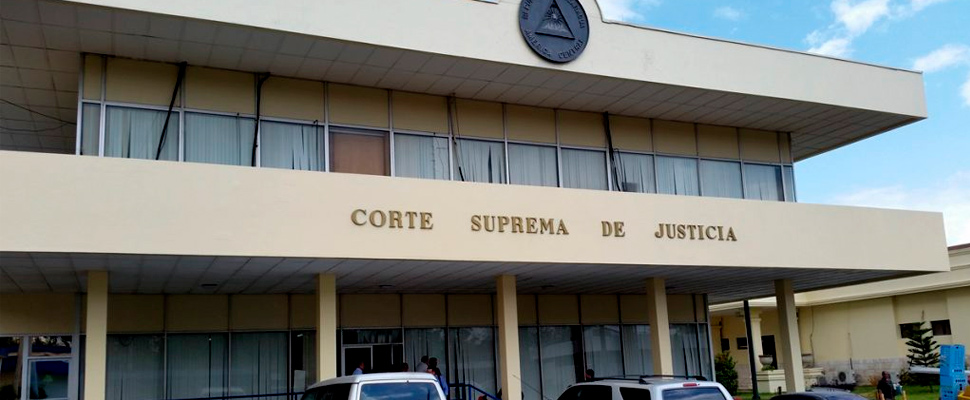Lawyers ask the Supreme Court to repeal Amnesty Law in Nicaragua
Opponents claim that the law "violets, openly, the Political Constitution of Nicaragua, because this denies the right to access to justice"

Listen to this article
Leer en español: Abogados piden a Corte Suprema derogar Ley de Amnistía en Nicaragua
Supreme Court of Justice of Nicaragua
EFE
A group of lawyers presented on Monday to the Nicaraguan Supreme Court of Justice an unconstitutionality appeal against a controversial Amnesty Law that, in the opposition's opinion, will leave unpunished government repression in the context of the crisis that broke out more than a year in this country.
The appeal was filed by lawyers Julio Montenegro, José Antonio López and Arnulfo López Cruz, members of the Ombudsman body, and received by the secretary of the Supreme Court, Rubén Montenegro.
In the document, the lawyers indicate that this Law, passed on June 8 by the official majority in the National Assembly, "violates, openly, the Political Constitution of Nicaragua, because this denies the right to access Justice".
They argued that this Law was "created for the purpose of forgiving and forgetting, in this case, the people who were objects of political processes" by the State.
Montenegro explained that this Law protects those guilty of committing crimes against opponents during the anti-government demonstrations that began on April 18, 2018.
"We are filing this appeal of unconstitutionality because we consider that the State of Nicaragua is violating the Magna Carta, is transgressing it openly and is becoming a way of wanting to reform the laws, even against the spirit of the Political Constitution," added the lawyer.
This resource is added to others filed by the Association Mothers of April, the Articulation of Social Movements, among other opposition movements.
Read also: Political crisis in Nicaragua shakes revenues of large Mexican firms
The Amnesty Law is rejected by the Nicaraguan opposition on the grounds that it does not offer justice to the victims of protests against the Government and because it is based on the official thesis that the anti-government demonstrations were an attempted coup against the mandatary.
Nicaragua is experiencing a social and political crisis that has generated protests against the Government of Ortega and a balance of between 325 and 595 dead, according to local and foreign human rights organizations, while the Executive figures 200 dead.
The Office of the United Nations High Commissioner for Human Rights (OHCHR) and the Inter-American Commission on Human Rights (IACHR) have held the Government responsible for "more than 300 dead," as well as extrajudicial executions, torture, obstruction of medical care , arbitrary detentions, kidnappings and sexual violence, among other violations of Human Rights.
Ortega has denied the accusations and has assured that it is an attempt of "coup d'etat". Demonstrations against Ortega began on April 18 last year due to failed social security reforms and became a requirement of the president's resignation.





